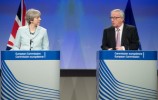The monstrosity of it all. The brutality, the pointlessness, and the ghosts
“The past is a foreign country: they do things differently there”, wrote the author L P Hartley.
Those words came to mind whilst watching the BBC documentary about the lost IRA film, ‘The Secret Army’. The year was 1972. It was a horrifyingly brutal and murderous period.
As a young child I lived through it. So the documentary held no surprises – especially as parts of the content were aired several years ago. What seemed remarkable was the apparent foolishness, naïveté, riskiness or plain stupidity of the IRA leadership in cooperating with an American filmmaker.
Perhaps they believed the IRA campaign was on the cusp of a military breakthrough. It wasn’t.
Connectivity is key for hospitality sector
DUP
In reality, paramilitaries, rogue RUC officers and the British Army were about to tip the north into a 25-year-long black abyss of murder and mayhem, reprisals and recriminations. The wanton disregard for innocent lives by paramilitaries and securocrats was, and is, stomach churning.
The BBC programme The Secret Army tells the story of a lost documentary that "unmasked the IRA, before vanishing........© The Irish News






















 Toi Staff
Toi Staff Gideon Levy
Gideon Levy Belen Fernandez
Belen Fernandez Warren J. Blumenfeld
Warren J. Blumenfeld Andrew Mitrovica
Andrew Mitrovica Dr Ramzy Baroud
Dr Ramzy Baroud Tarik Cyril Amar
Tarik Cyril Amar Rachel Marsden
Rachel Marsden Tafi Mhaka
Tafi Mhaka
